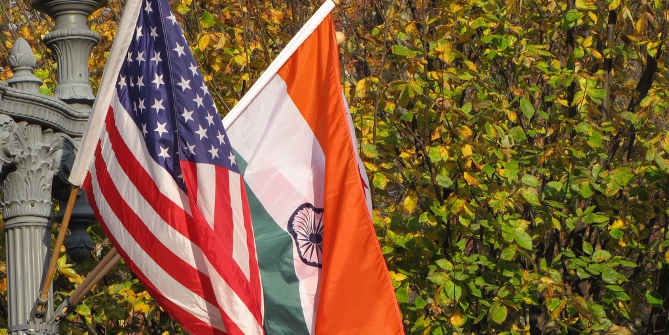India too, like the US, makes distastefully pragmatic policy choices

Western politicians can often be pretty tone deaf about the oil price compulsions that guide foreign members of their tribe.
Consider the US. There, it is a given that petrol prices and presidential approval are yoked together and this consideration can guide policy.
And yet, it is seen as surprising (and disappointing) that prime ministers in other countries also make the same linkages.
Not being a fan of the Hindu nationalist exclusivism propagated by India’s Prime Minister Narendra Modi, this is emphatically not a defence of the country’s pragmatic, if unprincipled stance on Russia’s invasion of Ukraine.
In fact, this is an explanation.
There is nothing to defend in the sense that India owed it to itself and to the global south to have been less neutral about Russia’s brutal unprovoked attack on its sovereign neighbour. As a formerly colonised nation and one that has been historically committed to peace, India should have been more high-minded about the Russian invasion, its attempt to erase Ukraine’s identity and its refusal to recognise that might is not right. As the land of Mahatma Gandhi, who managed to worst an empire by means of non-violence, India should have been less pragmatic and more high-minded about oil purchases from Russia.
Instead, India has, like China, dramatically increased its purchases of Russian oil. Prior to the invasion, India accounted for less than one per cent of Russia’s oil exports. By July 2022, these were at 13 per cent and demonstrably helping to offset Russia’s lost market share in Europe. In January this year, it emerged that India was the biggest customer of Russian oil. Al Jazeera noted that India imported a record 1.4 million bpd of Russian oil, a more than nine percent rise from December.
If the sequence of events sound pragmatic, that’s because they are.
Not too long ago, Tanvi Madan of Brookings pointed out to Axios that Russia was selling its oil at a discount and India’s Modi government had jumped at the chance to buy cheaply in its desperation to tackle inflation and recover economically from the pandemic. And India’s foreign minister, Subrahmanyam Jaishankar also described the Russian oil purchases as an “obligation and moral duty” of his government. The Indian authorities, he suggested, were duty-bound to ensure they got the lowest possible energy prices for Indian consumers.
In a distasteful sort of way, that makes business and political sense. As has often been noted, all recent US presidents (except for Donald Trump) have become more popular when petrol prices fall.
It’s a fact that politics is about pragmatism as well as principles; one can but hope they would mesh more often.

